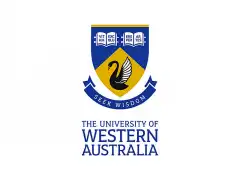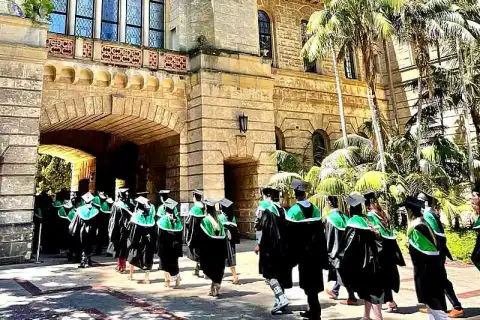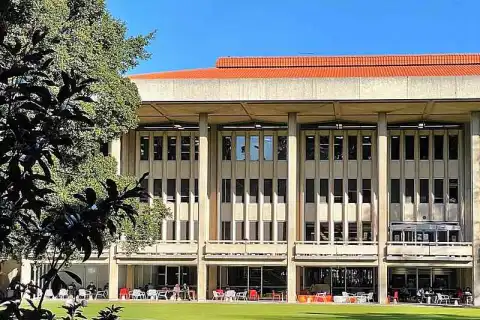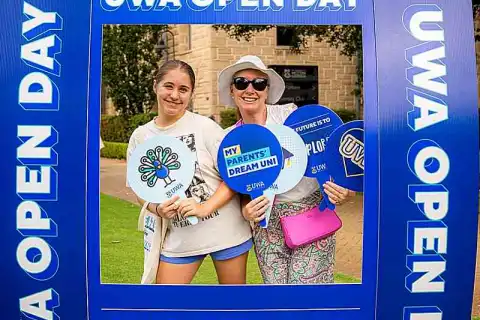Master of Public Health
- 2 years
- Duration
- 47,800 AUD/year
- Price
- Rolling admission
- Start
- Rolling admission
- Deadline
- Master
- Degree
- Campus
- Format
- Perth / Australia
- Location
Program description
In addition to the larger societal environment in which health programs are designed, implemented, and assessed, you will get a solid foundation in the fundamental disciplines of epidemiology, biostatistics, qualitative research techniques, health economics, and health promotion.
This course is available by: coursework; coursework and 24-point dissertation; or coursework and 24-point practicum.
A research project that involves performing a review of a body of scientific literature, writing a literature review and a comprehensive project proposal, developing instruments, applying to an ethical committee, and creating an analysis plan is one option available to students.
Program structure
Core (take all units (36 points):
- PUBH4401 Biostatistics I (6)
- PUBH4403 Epidemiology I (6)
- PUBH5749 Foundations of Public Health (6)
- PUBH5752 Health Systems and Economics (6)
- PUBH5754 Health Promotion I (6)
- PUBH5805 Qualitative Research Methods in Health (6)
Option - Group A Dissertation
Take unit(s) according to sequence notes:
- PUBH5712 Dissertation (full-time) (24)
- PUBH5714 Dissertation (part-time) (24)
Option - Group B Options
Take unit(s) according to sequence notes:
- AHEA5755 Aboriginal Health (6)
- APHB5501 Developmental Origins of Health and Disease (6)
- PAED4401 Research Conduct and Ethics (6)
- PUBH5705 Health Program Evaluation (6)
- PUBH5721 Public Health Field Trip (6)
- PUBH5743 Environmental and Occupational Health (6)
- PUBH5755 Critical Perspectives in Global Health (6)
- PUBH5757 Clinical Epidemiology (6)
- PUBH5758 Public Health Practicum (24)
- PUBH5761 Epidemiology and Control of Communicable Diseases (6)
- PUBH5763 Health Leadership and Management (6)
- PUBH5767 Child and Maternal Health (6)
- PUBH5769 Biostatistics II (6)
- PUBH5783 Health in an Era of Environmental Change (6)
- PUBH5784 Special Topics in Public Health (6)
- PUBH5785 Analysis of Linked Health Data (6)
- PUBH5801 Economic Evaluation of Health Care (6)
- PUBH5802 Advanced Analysis of Linked Health Data (6)
- PUBH5804 Food and Nutrition in Population Health (6)
- URBD5810 Healthy by Design (6)
Price
- Tuition fee — 47,800 AUD per year.
Requirements for applicants
To be considered for admission to this course an applicant must have
- a bachelor's degree, or an equivalent qualification, as recognised by UWA; or Graduate Certificate in Population Health Studies 91230, Graduate Certificate in Environmental Health 92210, Graduate Certificate in Communicable Diseases Epidemiology 91220, or an equivalent qualification, as recognised by UWA;
- the equivalent of a UWA weighted average mark of at least 60 per cent.
Applicants who have or have had a progress status of 'Suspended' or 'Excluded' against courses 92550 or 92560 are not eligible for admission.
English competency
- Minimum overall IELTS score of 6.5, with no band less than 6.0.
For more information on requirements, please contact your Edumapple manager.
About the university

With a founding purpose to "advance the prosperity and welfare of communities," the University of the State was established in 1911 and opened its doors in 1913 to a small student body of 184. More than 28,000 students hailing from 115 different countries are now enrolled.
In the realms of education, research, and student success, UWA has been at the forefront of groundbreaking innovations since its inception. However, a university is more than just a place to get a degree and do research.
Throughout Western Australia, the country, and the globe, UWA has played an important role in advancing knowledge, culture, and the economy for over a century.
As the sole institution in Western Australia to be ranked in the top 100 globally, UWA has earned praise for its creative curricula, strong ties to local businesses, dedication to the student experience, and groundbreaking research.
Choosing to study at UWA means becoming a member of a community that has a reputation for leading good change, both locally and globally. You will also become part of a network of dedicated and innovative leaders who are determined to make a difference.





